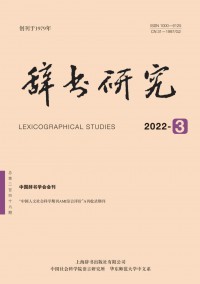成語故事典故
前言:想要寫出一篇令人眼前一亮的文章嗎?我們特意為您整理了5篇成語故事典故范文,相信會為您的寫作帶來幫助,發現更多的寫作思路和靈感。
成語故事典故范文第1篇
2、臥薪嘗膽:越王勾踐;
3、退避三舍:晉文公;
4、問鼎中原:楚莊王;
5、圍魏救趙:孫臏;
6、紙上談兵:趙括;
7、作法自斃:商鞅;
8、投筆從戎:班超;
9、背水一戰:韓信;
10、完壁歸趙:藺相如;
11、負荊請罪:廉頗;
12、望梅止渴:曹操;
13、四面楚歌:項羽;
14、破釜沉舟:項羽;
15、紙上談兵:趙括;
16、指鹿為馬:趙高;
17、三顧茅廬:劉備;
18、東窗事發:秦檜;
19、如魚得水:劉備;
20.初出茅廬:諸葛亮;
21、圖窮匕見:荊柯;
22、草木皆兵:苻堅;
23、毛遂自薦:毛遂;
24、一鼓作氣:曹劌;
25、千金買骨:郭隗;
26、諱疾忌醫:蔡桓公;
成語故事典故范文第2篇
路不拾遺,漢語成語,拼音是lù bù shíyí,東西掉在路上沒有人撿走據為己有,形容社會風氣很好。也說道不拾遺。這里給大家分享一些關于路不拾遺的成語接龍,供大家參考。
一、路不拾遺成語解析遺:失物。路上沒有人把別人丟失的東西撿走。形容社會風氣好。《韓非子·外儲說左上》:“國無盜賊,道不拾遺。”
二、路不拾遺成語典故唐朝建中年間,南劍州有個秀才,叫林善甫。他自幼聰慧異常,為人耿直,博覽群書,眼下在京城太學讀書。這次,因母親患病,告假回家,日夜在母親床邊侍奉。
不久,母病痊愈,林善甫收拾行李,暫別母親,帶了書童王吉,再往京城太學讀書。
一路上,饑餐渴飲,夜住曉行,不日便到了蔡州邊界。
一天,眼看天色已晚,林善甫主仆二人到一家客店投宿。店小二帶路,選一間寬敞潔凈的房間將他們主仆安頓下來。王吉隨意買了些點心回來,主仆二人吃了當作晚飯。
飯后無事,林善甫點燈讀了一會兒詩書,王吉便安排主人上床休息,好明日清早起身趕路。王吉在床前打個地鋪,由于白天勞累,倒下便呼呼入睡。卻說林善甫脫了衣服上床,仰天躺下,因思念母親,輾轉反側,一時無法入睡。
忽然,隱隱覺得身下有一硬物硌著,橫豎睡不舒服。好在油燈未熄,便起身揭起床單墊被察看,只見墊被下面原來有一個布袋,袋中有一錦囊,錦囊中有上百顆罕見的大珍珠,價值連城。
林善甫拿在手里細細察看,略一思索,就收在自己行李中,然后躺下熄燈休息。
第二天,起床梳洗,王吉收拾行李。
林善甫走出客房,到帳臺前問店主人道:“前天夜里什么人在我那間房里住宿?” 店主人答道:“前天晚上是一位過路客商在房內住宿,官人有何吩咐?”“這個客商原是我的故友,我們相約在此會面。因我誤了日期,沒能見到,”林善甫說,“這個客商如若回來尋找時,麻煩店主轉告,可讓他來京城太學尋問林善甫便可以了。千萬千萬!不可誤事!”林善甫結算了住店錢,又一再叮嚀店主,方才動身上路。
王吉在前面挑著行李,林善甫在后面緊跟趕路。
走著走著,林善甫恐怕店主人誤事,放不下心,便吩咐王吉在沿途顯眼的墻上張貼啟事。啟事上寫道:“某年某月某日,南劍州林善甫于返京城太學途中,宿于蔡州客店,有故友尋覓大珠,請去京城太學尋訪勿誤。”不過半月,主仆已到京城,去太學報到銷假,仍舊安心讀書。
再說這袋珍珠原來是商人張客遺下的。他那日匆忙離開客店,第二天去采購貨物,要想從行李中取出珍珠來兌換銀兩,方知所帶珍珠全部不翼而飛。
這一下子嚇得他魂不附體,失聲叫道:“苦也!苦也!我一生經商,方才積得這些珠子作本錢。今日不慎丟失,回家后妻子兒女如何肯相信,一家大小以后如何生活?”他再三回憶,也想不起在何處丟失,只得沿原路回頭細細尋找,直尋到蔡州客店。
他向店小二打聽,店小二說:“不知道。”又進店內詢問店主人:“我離開你家客店后,哪位客官在那房中安歇?”店主人這才想起,回答道:“我差一點兒忘了,你離店去后有位官人來住了一宿,第二天大清早便動身趕路了。臨行時,吩咐說:‘有故友尋找,可千萬讓他來京城太學尋訪林善甫便可以了。’”張客聽了,感到蹊蹺,口中不說,心中想道:“自己與這個林善甫素昧平生,莫不是此人拾得了這袋珠子?”當日,只得離了客店,取道向京城而去。見到沿途上貼著啟事,讀了發現啟事中有“大珠”字樣,略略放心。他也顧不上勞累,日夜兼程趕路。
到了京城,未去尋找客店安頓,徑直來到太學旁路邊茶坊坐定。吃茶時,向店中小二打聽林善甫這人,吩咐道:“我是林善甫多年未見的遠房親戚,怕已不認識了。如若林善甫從太學出來,麻煩招呼指引相見。”正說著,店小二就指著從太學中走出的一個人道:“出來的便是林善甫林官人,他在我家漿洗衣衫,是位常客。”張客見了,不敢造次,待林善甫進入茶坊坐定,這才上前施禮,簌簌淚下,跪倒在地。
林善甫忙不迭扶起說道:“官人有什么事,但說無妨。” 張客便把遺失布包的前后經過詳細說了一遍。
林善甫說:“不要慌,東西在我這里。我且問你里面有些什么東西?”張客如實相告,林善甫聽他說得不錯,于是帶了張客去住處取那布袋。
張客見了布袋便道:“這個便是我丟失的。我愿意拿出一半珠子,酬謝官人救命之恩,剩下一半帶回家撫養家小。官人重義輕財,在下感激不盡!”林善甫說:“豈有此理!我假若要你一半珠子,那何必囑告店主,又何必沿途張貼啟事,讓你尋找來京城太學?只是這袋珠子價值不少,今交還給你,不是一件小事,恐怕日后無以為憑,你要親手書寫一張收條才能領回去。”張客再三不肯全部領回這袋珠子,林善甫堅持不受。這樣幾次推讓,張客才親筆寫了收條交林善甫看后收了。
林善甫交付那袋珠子:“你仔細查點,可有誤漏。”張客千恩萬謝,拜辭而去。
自此以后,林善甫路不拾遣的善舉被后人傳頌,名垂千古。
成語故事典故范文第3篇
曹操的人都沒有見過大象。這大象又高又大,光說腿就有大殿的柱子那么粗,人走近去比一比,還夠不到它的肚子。
曹操對大家說:這只大象真是大,可是到底有多重呢?你們哪個有辦法稱它一稱?嘿!這么大個家伙,可怎么稱呢!大臣們紛紛議論開了。
一個說:只有造一桿頂大頂大的秤來稱。
另一個說:這可要造多大的一桿秤呀!再說,大象是活的,也沒辦法稱呀!我看只有把它宰了,切成塊兒稱。
他的話剛說完,所有的人都哈哈大笑起來。大家說:你這個辦法呀,真叫笨極啦!為了稱稱重量,就把大象活活地宰了,不可惜嗎?
大臣們想了許多辦法,一個個都行不通。真叫人為難了。
這時,從人群里走出一個小孩,對曹操說:爸爸,我有個法兒,可以稱大象。
曹操一看,正是他最心愛的兒子曹沖,就笑著說:你小小年紀,有什么法子?你倒說說,看有沒有道理。
曹沖把辦法說了。曹操一聽連連叫好,吩咐左右立刻準備稱象,然后對大臣們說:走!咱們到河邊看稱象去!
成語故事典故范文第4篇
In the Jin Dynasty (265-420) there was a famous writer whose name was Zuo Si who, however, was very naughty and did not like to study when he was a small kid.His father often got angry, and yet young Zuo Si was as naughty as ever and would not study hard.
One day, Zuo Si's father was chatting with his friends. his friends envied him his clever and loverly son. Hearing this, Zuo si's father sighed, "Please do not mention him. My son Zuo si does not study as well as I did when I was young, although I did not study well enough myself. It appears that he is actually a good-for-nothing." So saying, he looked disappointed. All this was witnessed by young Zuo Si. He felt very sad, feeling intensely4 that he would not be able to have a bright future if he did not study hard. So he was determined5 to study assiduously from then on. Day after day and year after year, Zuo Si gradually grew up. Because of his unremitting afforts in hard study, he became an erudite scholar and wrote very excellent essays. The "Ode to the Capital of the State of Qi", which took him one year to write, showed his brilliant literary6 talent and laid the foundation7 for his becoming an outstanding writer. then he planned to write an "Ode to the Capitals of the Three Kingdoms of Wei, Shu Han and Wu" with the local conditions and customs as well as the produce of the three capitals as its content. In order to achieve the desired effect in content, structure and language, he applied8 himself to research work with great concentration9, and was so absorbed in creative writing as to forget food and sleep. It took him ten whole years to finish the writing of "Ode to the Capitals of the Three Kingdoms of Wei, Shu Han and Wu", a literary masterpiece.
The "Ode to the Capitals of the Three Kingdoms of Wei, Shu Han and Wu" was well received by the broad masses of readers after it made its appearance to the public, and people considered it as superbly10 written as the "Ode to the Western Capital (Changan) and to the Eastern Capital (Luoyang)" written by Ban Gu (32-92) and the "Ode to the Western Capital and to the Eastern Capital" written by Zhang Heng of the Han Dynasty (206 B.C. to A.D.220). As the art of printing had not been invented at that time, people who were fond of this "Ode" had to make handwritten copies of it themselves. As there were so many people who vied with each other in making handwritten copies, the supply of writing paper fell short of the demand in Luoyang went up greatly.
This story comes from "The life of Zuo Si" in the book "Literary Field" of The History of the Jin Dynasty. Based on this story, people have coined the set phrase "the price of writing paper went up greatly", meaning the overwhelming popularity of a new work causes shortage of printing paper, to show how popular an outstanding piece of literary work is.
晉代文學家左思,小時候是個非常頑皮、不愛讀書的孩子。父親經常為這事發脾氣,可是小左思仍然淘氣得很,不肯好好學習。
有一天,左思的父親與朋友們聊天,朋友們羨慕他有個聰明可愛的兒子。左思的父親嘆口氣說:“快別提他了,小兒左思的學習,還不如我小時候,看來沒有多大的出息了。”說著,臉上流露出失望的神色。這一切都被小左思看到聽到了,他非常難過,覺得自己不好好念書確實很沒出息。于是,暗暗下定決心,一定要刻苦學習。
日復一日,年復一年,左思漸漸長大了,由于他堅持不懈地發奮讀書,終于成為一位學識淵博的人,文章也寫得非常好。他用一年的時間寫成了《齊都賦》,顯示出他在文學方面的才華,為他成為杰出的文學家奠定了基礎。這以后他又計劃以三國時魏、蜀、吳首都的風土、人情、物產為內容,撰寫《三都賦》。為了在內容、結構、語言諸方面都達到一定水平,他潛心研究,精心撰寫,廢寢忘食,用了整整十年,文學巨著《三都賦》終于寫成了。
成語故事典故范文第5篇
誰料,苻堅的先鋒部隊25萬在壽春一帶被晉軍出奇擊敗,損失慘重,大將被殺,士兵死傷萬余。秦軍的銳氣大挫,軍心動搖,士兵驚恐萬狀,紛紛逃跑。此時,苻堅在壽春城上望見晉軍隊伍嚴整,士氣高昂,再北望八公山,只見山上一草一木都像晉軍的士兵一樣。苻堅回過頭對弟弟說:“這是多么強大的敵人啊!怎么能說晉軍兵力不足呢?”他后悔自己過于輕敵了。
出師不利給苻堅心頭蒙上了不祥的陰影,他令部隊靠淝水北岸布陣,企圖憑借地理優勢扭轉戰局。這時晉軍將領謝玄提出要求,要秦軍稍往后退,讓出一點地方,以便渡河作戰。苻堅暗笑晉軍將領不懂作戰常識,想利用晉軍忙于渡河難于作戰之機,給它來個突然襲擊,于是欣然接受了晉軍的請求。
誰知,后退的軍令一下,秦軍如潮水一般潰不成軍,而晉軍則趁勢渡河追擊,把秦軍殺得丟盔棄甲,尸橫遍地。苻堅中箭而逃。
故事出自《晉書·苻堅·載記》。成語“草木皆兵”,形容神經過敏、疑神疑鬼的驚恐心理。
During the Eastern Jin Dynasty, Fu Jian, king of the State of Qin, controlled northern China. In the year383, Fu Jian led 900,000 infantry1 and cavalry2 troops to assault the State of Jin which was south of the Yangtze River. Xie Shi and Xie Xuan, senior generals of the Jin army, led 80,000 troops to offer resistance. Knowing that the Jin army was short of men, Fu Jian wanted to seize this opportunity of being much more numerous in armed forces to stage a quick attack.
Unexpectedly, the van of Fu Jian's army of 250,000 troops was defeated in the Shouchun area by an ingenious military move of the Jin army and suffered heavy losses. The senior general of the van of Fu Jian's army was killed, and there were heavy casualties of more than 10,000 soldiers. Fu Jian's army was dispirited and its morale3 was shaken. Many soldiers were in such a great panic that they waited for opportunities to run away. Standing4 on the city wall of the Shouchun City, Fu Jian and his brother Fu Rong saw that the ranks of the Jin army were in good order and that the morale of the Jin army was high. Turning to his brother, Fu Jian said, "What a powerful enemy this is! Why did people say that the Jin army was short of men?" He deeply regretted that he had taken the enemy too lightly.
Overshadowed by the disastrous5 defeat, Fu Jian ordered his troops to be deployed6 in battle formation on the north side of the Feishui River, in an attempt to regain7 the initiative by relying on the superior geographical8 conditions. Then Xie Shi and Xie Xuan, the senior generals of the Jin army, suggested that Fu Jian's army retreat a little bit, leaving some space, so that the Jin army could cross the river to conduct ooperations. Fu Jian thought that his chance had come, believing that the senior generals of the Jin army did not have the elementary knowledge of warfare9. It was his plan to stage a sudden attack while the troops of the Jin army was busy crossing the river, and he was sure that his plan would word. So he willingly accepted the suggestion of the Jin army.


